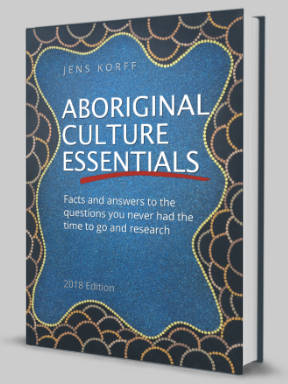Language
Lack of Aboriginal language interpreters can cost lives
English is still a foreign language for many Aboriginal people. If they don't understand they are disadvantaged at best, dead at worst.

Wishing you knew more about Aboriginal culture? Search no more.
Get key foundational knowledge about Aboriginal culture in a fun and engaging way.
This is no ordinary resource: It includes a fictional story, quizzes, crosswords and even a treasure hunt.
Stop feeling bad about not knowing. Make it fun to know better.
When you don't know if disaster is heading your way
As tropical Cyclone Trevor approached northern Australia in March 2019, Aboriginal communities, such as the Arnhem Land community of Ngukurr, had an additional crisis to manage: getting vital and possibly life-saving information and updates about the cyclone's movements.
Community members knew a cyclone was coming through information on the radio, television and via local police, but it was mostly in English. In their communities their first language is Kriol.
The English information about the approaching cyclone was only understood to mean it was 'coming closer', without specific, actionable details.
While Ngukurr escaped the cyclone almost unscathed as the weather system moved further south, hundreds of people – fearing for their lives – still self-evacuated from the community, or stayed put up until the day the cyclone made landfall because road closures made it difficult for vehicles to travel. They were unaware that the Bureau of Meteorology had deemed Ngukurr safe from the most severe impacts of the cyclone. [1]
For many Aboriginal people English is a second, third, sometimes even fifth, language, [2] and many struggle to understand medical advice, court orders and other vital information. But services, for example for distributing emergency information, have often no policy on translating messages into local languages – even when the emergency is directly impacting communities where English is not well understood. [1] It's a problem that can cost lives (see case studies below).
A report released in June 2010 by the Equal Opportunity Commission on Aboriginal interpreting services found the lack of qualified interpreters also severely affected the ability of Aboriginal people to access crucial government services such as justice and health.
It found 20% of remote Aboriginal people had difficulty understanding or being understood by service providers [3].
Court jargon and medical terminology can be difficult, and we need to explain it to people. It's very, very complicated.
— Annette Kogolo, Walmajarri woman and co-chair of the Kimberley Interpreting Service [3]
For staff in most city hospitals it is easier to get an interpreter for almost any language on the face of the Earth than for local Aboriginal languages.
— Judith Dwyer, professor of health care management, Flinders University [4]
How would you feel at court without a language interpreter?
The Northern Territory Aboriginal Interpreter Service produced a great video to show the difficulties of interpretation in a legal context.
This is the shortened version. The full version is 30 minutes.
Like this? Check out the movie Babakiueria which reverses Australia's invasion to Aboriginal people invading an all-white Australia.
When misunderstandings cost lives
A lack of Aboriginal language interpreters literally costs lives.
Baby dies
An Aboriginal baby died because the mother did not understand the doctor's instructions to apply a medicine only on the body. Instead the mother made the baby take it orally [3].
Perpetual parole breaker
An Aboriginal person constantly broke parole until an interpreter was engaged to explain the reporting conditions properly [3].
Court decision voided
A South Australian Supreme Court judge upheld an appeal of an Aboriginal man because he was not given a fair hearing due to the lack of qualified translators [5].
Eight times the trial required a language interpreter but only once did one arrive. The lawyer had to ask a sentenced prisoner with little knowledge of the English language to step in, while another prisoner assisted the psychiatrist during his assessment of the man.
The judge ruled that the accused man was "deprived of his rights".
Read what happens to Aboriginal people when they don't understand the white law system and falsely say, "I plead guilty!"